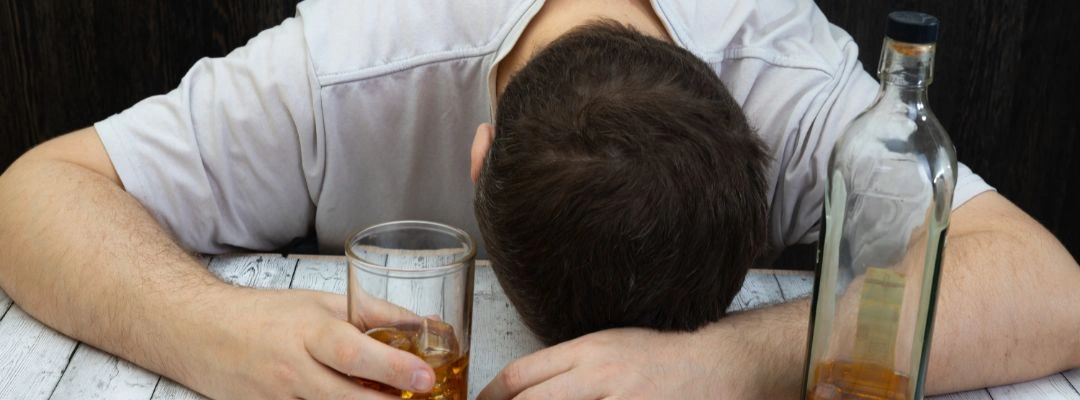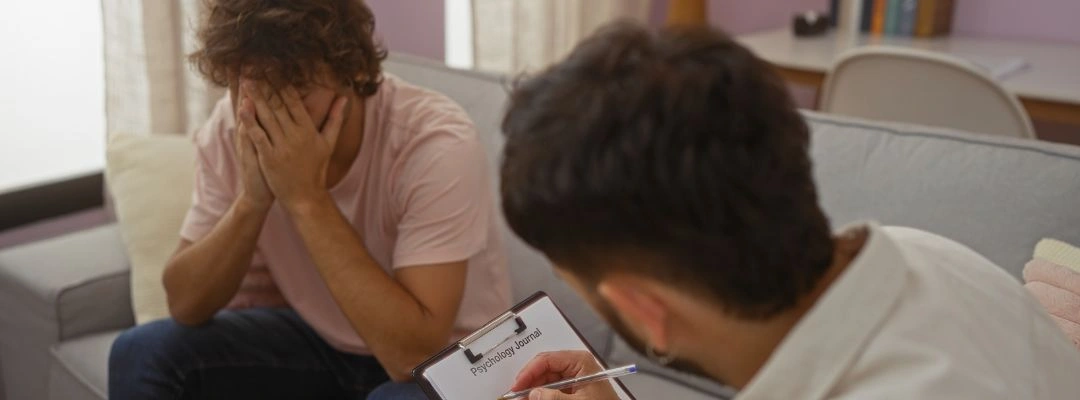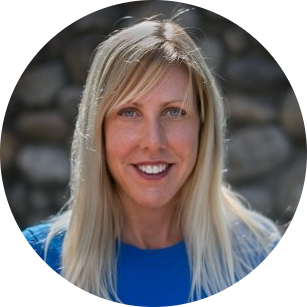Depression And Alcohol Abuse Dual Diagnosis
Our Alcohol Abuse and Depression Treatment at South Shores
Many have picked up the bottle and tried to drink their way out of depression. It often starts as something to “take the edge off” or quiet the noise in your head at the end of a long day. But, as drinking becomes more frequent, it’s harder to shake those negative feelings. Depression becomes your norm, as does using alcohol to cope.
For co-occurring depression and alcohol abuse, dual diagnosis stands as the gold standard of treatment. If you’ve tried to quit before and struggled, it’s not that you didn’t try enough. You just didn’t have the right support.
You’ll find the help you need at South Shores Recovery. Keep reading to learn more about the link between these co-occurring disorders, and our dual diagnosis programs can help you start feeling like your old self again.
The Vicious Cycle of Alcoholism and Depression
When you’re wallowing in a deep depression, you’d do just about anything to feel better. Some people binge eat or watch comfort shows, unable to get out of bed. Others turn to alcohol. You might go out with friends and drink, trying to have a good time.
Or, you might drink by yourself, trying to numb the depressive feelings you can’t seem to escape.
Self-Medication Works – Until it Doesn’t
When you use alcohol or other substances to “treat” depressive symptoms, it becomes a form of self-medication. Unfortunately, while medications you get from a doctor can improve symptoms, substance abuse makes you much worse.
Alcohol is a depressant. That means that even though it can take the edge off major depression symptoms in the moment, long-term, it negatively impacts mental health. Alcohol reduces important neurotransmitters that affect how “good” you feel. It also makes it harder to get a good night’s sleep, further harming your mental health.
It’s also possible to become dependent on alcohol to feel some type of normalcy. As you become more addicted, relationship, employment, financial, and legal troubles all become more likely. These stressors just add to negative emotions.
Understanding Depression Symptoms: When is it More Than Sadness?
Few people claim to be “happy” all the time, and those who do are probably lying. But, when do passing feelings of sadness enter the territory of major depression?
Some signs of clinical depression include having trouble sleeping, even with constant fatigue, persistent feelings of being blue, and disinterest in things that used to make you happy. You might also have stomach issues or headaches.
Major Depression vs Persistent Depressive Disorder vs. Seasonal Affective Disorder
Treatment for any mental health condition starts with getting the right diagnosis. Depression comes in many forms. Major depressive disorder symptoms are severe enough to affect daily life. They last at least two weeks, but often longer.
Persistent depressive disorder has milder symptoms, but they can last for years. Drinking can make these “milder” symptoms feel significantly worse. Seasonal affective disorder is most common during certain periods of the year, especially winter.
Why Dual Diagnosis Matters
Healing from substance use disorder starts with having an accurate diagnosis, according to the Substance Abuse and Mental Health Services Administration. Many symptoms of mental illness are similar to what you’d experience during alcohol withdrawal. This is one of the reasons major depressive disorder might be overlooked in someone struggling with alcoholism.
Dual diagnosis is important because when co-occurring disorders are not treated together, there’s a greater risk of relapse. Living with mental illness can sabotage your sobriety efforts, and failing to treat substance abuse makes it hard to get effective help for your mental health.
Treating Alcoholism Alongside Other Mental Health Disorders
Any type of long-term substance abuse increases the risk of mental disorders, but alcohol especially makes it twice as likely that you’ll struggle with a co-occurring mental health condition. It’s possible for one to cause the other, but because they share similar risk factors, co-occurring disorders can also develop separately.
Some of the most common psychiatric disorders treated alongside substance abuse include depression, bipolar disorder, anxiety disorders, trauma-related disorders, and sleep disorders.
Find a Better Path to Dual Diagnosis Recovery at South Shores
Unfortunately, when you’re also going through substance abuse treatment, some facilities overlook co-occurring mental illness. Without treatment, you’ll find yourself dealing with the same stressors that contributed to alcohol use in the first place.
You don’t have to worry about that at South Shores. Here’s a look at our program offerings for co-occurring depression and alcohol use disorder.
Comprehensive Alcohol and Drug Abuse Assessments
One of the most important steps in recovery from alcohol and depression is knowing what you are up against. Admission to one of our programs starts with a screening for substance use disorder and mental illness. From there, you’ll work with one of our staff to build a treatment approach designed especially for the battles you’re up against.
Not All Addiction Treatment Centers Offer True Dual Diagnosis
It’s easy to make claims about treating dual diagnosis, but many facilities don’t do this using the same effective approach you’ll find at South Shores.
We take the time to listen to our clients when they discuss their struggles, helping us diagnose and treat co-occurring conditions accurately. By healing mental health alongside alcohol dependence, you’ll find yourself prepared to embark on your recovery journey.
Residential vs. Outpatient Dual Diagnosis
Part of individualized treatment is having the right level of support. Alcohol withdrawal typically comes with severe symptoms that make depression significantly worse. Detoxing in an inpatient facility is safer and more comfortable. You also won’t have the option of turning to alcohol when symptoms get bad.
Outpatient dual diagnosis, including partial hospitalization programs and intensive outpatient programs, is ideal if you have a safe home environment. You might want to stay with someone who can be there during detox and call for help if you have complications.
Another option is transitioning to an outpatient program as your support needs decline. This is a good choice for people who want to stay supported in those early days of sobriety, especially since the first 90 days are the hardest.
Medical Detox for Substance Use Disorder
Once you develop alcohol dependence, it’s common to experience withdrawal when you stop using it. These symptoms can be intense and sometimes dangerous.
Our medical detox care team will monitor you through this tough process and provide medications as needed to manage your symptoms. As the worst of the physical symptoms pass, you’ll also be invited to participate in a treatment program that will help you stay sober, even after you’ve left South Shores.
Common Symptoms of Alcohol Withdrawal
Alcohol withdrawal symptoms often start with feeling shaky, anxious, and irritable. It gets harder to sleep, and you’ll feel fatigued and depressed. Some people even have hallucinations.
Physically, you may have tremors, headaches, nausea, or sweating. You’re also at risk for seizures, which is one of the reasons you may benefit from inpatient treatment.
Behavioral Therapy
In dual diagnosis cases, dialectical behavior therapy or cognitive behavior therapy might be recommended. Behavioral therapies are one of the more effective treatments for both conditions.
As a treatment for depression, you learn to identify when symptoms are getting bad and manage intense emotions. For alcohol use disorder, behavioral therapies are useful for changing negative thinking patterns and developing coping skills.
Medication Management for Mental Disorders
When you’re struggling with dual diagnosis, it’s not uncommon for medications to be used as part of the healing process. Monoamine oxidase inhibitors (MAOIs), selective serotonin reuptake inhibitors (SSRIs), anti-anxiety medications, and mood stabilizers are just some prescription medications that might be recommended for your symptoms.
We’ll adjust these as needed until we find the perfect balance to support your sobriety. Once you leave South Shores, we’ll also help you find mental health professionals for ongoing treatment and periodic reevaluation of your medications.
Comprehensive Substance Use Treatment
There is a lot more to healing than going to therapy, taking some pills, and attending support groups. At South Shores, we look at you as a whole person. We see more than just your symptoms or substance use disorder.
Healing is a whole-body process. This starts with things like proper nutritional support and ensuring you get a good night’s rest, even when withdrawal symptoms make it hard. You learn the importance of self-care and having structure, rather than giving in to the chaos that alcoholism may have brought into your life.
We also offer a variety of holistic therapies, from art and music therapy to surf therapy and yoga on the beach. These serve as a healthy outlet for your emotions and teach you coping skills that can be used even after you’ve graduated from South Shores. You might even find a hobby that you enjoy, something that you’ll be able to use to keep yourself busy when cravings get intense.
Aftercare and Support Groups
Recovery is ongoing; it isn’t a process that ends after you’ve left South Shores. We believe it’s our duty to our clients to ensure they’re supported once they leave, so we do what we can to make sure you’re ready.
We teach you tools to recognize when you’re in crisis. South Shores can also make referrals for mental health professionals and help you find substance use support groups in your local area.
We also work with sober living facilities, which provide a safe environment after inpatient treatment for clients who might not have somewhere supportive to return to. As a team, we all come together to ensure the next steps that you take in life are ones that support your sobriety going forward.
Fortunately, when you choose South Shores, you’re in Orange County’s thriving recovery community. We are very familiar with aftercare resources across Orange County. Our CEO, Eric Botelho, has had his own recovery journey and has been sober for decades.
We have close ties to the community, and that’s one of the reasons that the work we do here is so important to us. We are invested in helping each of our clients heal so they can lead better lives.
Family Involvement in Recovery 
When families get involved, the whole family can heal from addiction. The reality is that alcohol and drug use doesn’t only affect the person using. Everyone who loves them is affected, too. Parents find themselves worrying about if their child is okay, romantic partners pick up the slack financially and emotionally at home, and even kids feel that something is off.
Like substance use can harm everyone, getting substance use treatment can help the whole family heal. At South Shores, when possible, we invite the family to be part of the healing process. It becomes easier to heal when everyone is working together.
Families learn to understand addiction and how to offer support without enabling their loved one’s alcohol use. Family therapy also provides a safe place for everyone to air out and process unresolved feelings that might get in the way of healing.
Call South Shores Recovery for Better Dual Diagnosis Support
When depression symptoms and alcohol issues become intertwined, it’s easy to have a bleak outlook on the future. Know that there is hope, and reaching out to South Shores Recovery can lead you to that path.
At South Shores, we do more than treat addiction. We are an accredited mental health facility with the knowledge and resources necessary for dual diagnosis cases. Don’t trust just anyone with your sobriety. Call us today.
References
Medical Reviewer
Katrina Harris
LMFT, Clinical Visionary Officer
Read Bio
Author
Christina Tchamanian
Program Director
Read Bio
Contact us







